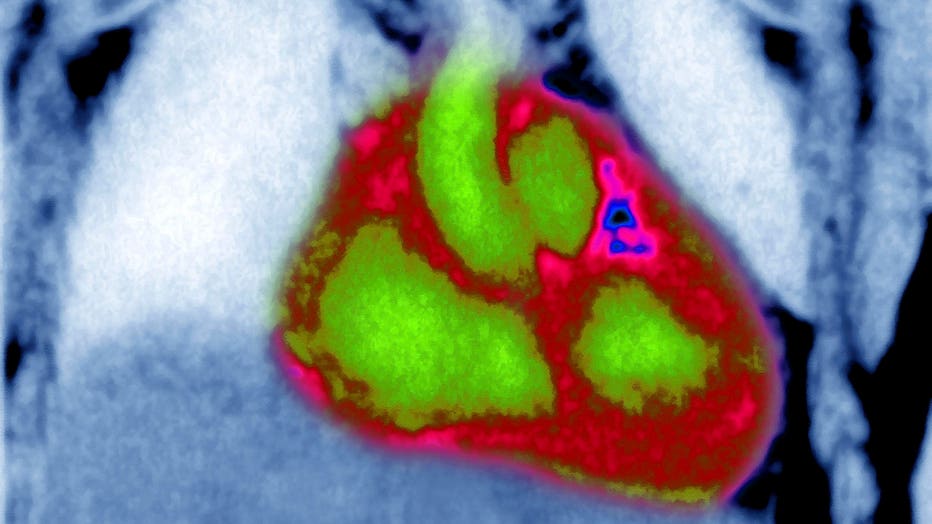New research suggests COVID-19 can leave long-lasting heart damage
New research suggests that COVID-19 can cause lingering heart damage after patients have recovered from the virus, including in those whose illness was not severe enough to require hospitalization.
A pair of studies published this week in JAMA Cardiology looked at the cardiovascular effects of COVID-19. One study focused on patients who had recovered from the virus, while the second examined older victims who died after contracting the virus.
The first study, published July 27 by researchers at University Hospital Frankfurt, looked at cardiac MRIs of 100 recovered patients between the ages of 45 to 53. The images were compared to people who had never contracted the virus.
Researchers found that 78 patients showed evidence of heart damage after they recovered — and 60 of those patients showed signs of inflammation in the heart muscle weeks after the patients’ recovery.

An undated file image shows a normal human heart during a cardiac MRI. (Photo By BSIP/UIG Via Getty Images)
The study noted that the patients were all mostly healthy prior to their illness. Most had recovered from the virus at home, and 18 people had never even experienced symptoms of the virus.
"These new findings provide intriguing evidence that COVID-19 is associated with at least some component of myocardial injury, perhaps as the result of direct viral infection of the heart," Dr. Clyde Yancy, chief of cardiology in the department of medicine at Northwestern Medicine in Chicago, wrote in an editorial accompanying the studies.
In the second study, also published in JAMA Cardiology, researchers analyzed autopsy reports from 39 victims of COVID-19 who died early in the pandemic. The patients were between the ages of 78 and 89.
The study found evidence of the virus in the heart tissue in 24 of the patients.
“We see signs of viral replication in those that are heavily infected,” study co-author Dirk Westermann, a cardiologist at the University Heart and Vascular Centre in Hamburg, told Stat News. “We don’t know the long-term consequences of the changes in gene expression yet. I know from other diseases that it’s obviously not good to have that increased level of inflammation.”
Scientists around the world have been racing to better understand how SARS-CoV-2, the virus that causes COVID-19, impacts the body. Worrying reports have indicated that the virus may be capable of inflicting long-lasting damage to many other areas of the body, including the lungs, nervous system and kidneys.
A recent study by researchers at University College London described more than 40 patients with COVID-19 who experienced a multitude of different brain effects, including severe neurological complications such as delirium, brain inflammation, stroke and nerve damage.
In another study published June 25, Dr. Amy Rapkiewicz, a pathologist at NYU Langone Medical Center, conducted autopsies of seven COVID-19 patients and found clotting in small blood vessels in organs throughout the body.
“I think there still needs to be some very basic science studies into the biology of COVID,” Rapkiewicz said, who added that the aim of her study and others like it is for researchers to better understand how to prevent these severe complications reported in some patients.
RELATED: CoronavirusNOW.com, FOX launches national hub for COVID-19 news and updates
This story was reported from Cincinnati.

